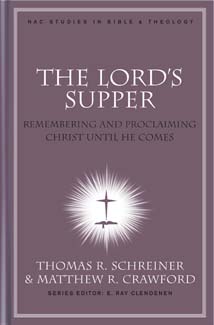In a previous post I mentioned how glad I am that we have widespread literacy and scholarly bible study to keep us connected to the intellectual truths of Christianity. I rejoice in how everyone can have direct access to theology. In how our access to various media can allow everyone’s ideas to be evaluated and critiqued. But I think this luxury has pulled us too much in that direction. Because in the bible I also see God sometimes using elements like
narrative and symbolism to introduce people to his message. I think in some cases instead of diluting the message the additional narrative or symbolic elements can make the message more memorable and relatable.

I was reading The Lord's Supper: Remembering and Proclaiming Christ Until He Comes and I enjoyed it alot. But I did notice not exactly a defect but what I felt was an imbalance. This book is from the Baptist perspective, and while a lot of time was spend on the augments for the primary significance of communion being symbolic (against transubstantiation and related) comparatively little time was spent on the symbolism itself. Now this is a scholarly work so it’s appropriate to focus on concepts and the reality of ideas. However the Lord’s Supper is a very important practice. And I think the importance is in the symbolism. That importance should be overriding enough to make some room for exploring and reveling in the symbolism. I think sometimes our focus is so intellectual that, having affirmed the intellectual truth that the meaning is symbolic, we then don’t know what to do with that symbol.
I liked Math in school and there was a certain joke I really like: There was a chemist a physicist and a mathematician and an experimenter want to know which is which. He sets up a lab with some papers on fire in a trash can on the lab bench. He sends the men in one by one. This is the mathematician.
 |
| photo by Rizzo183 |
In abstract pursuits you want to boil information into a known fact or an applicable result. But there is more in a symbol or a parable than just a fact or an application. It can also convey an intuition a feeling or an attitude. I think our modern culture sometimes doesn’t really absorb and value, and even critique those things as it should.





.JPG)






